Podcast: Play in new window | Download | Embed
Today’s Guest
Julia Roy joins the 26th session of Smart Brand Marketing with your host Tom Libelt.
In this episode we chat about the brain and how it affects our productivity.
Enjoy!
Productivity and How You Can Increase Yours to Get Better Results
Being productive is like a major requirement if you want to achieve something in all of your ventures. In fact, you can’t technically achieve anything if you can’t find a way to make yourself as productive as possible.
This might sound cliché but the key to productivity lies in the mind. After all, that space between our ears is controlling every part of the body and making it find that sweet spot to be creative can increase your chances of producing better results with whatever venture you are taking.
So, the question is “how do you do it?” It’s actually quite simple but, first, you should understand a few basic concepts first.
How does the Brain Actually Work?
Without getting all too science-y here, let’s just say that much of the brain works in autopilot especially for the things that are already part of your daily habit or the ones that you have trained extensively for. This is where things like instincts and muscle memory are included and the brain tends to put these actions in the short list just in case you need to perform in the next few moments.

However, for actions that are not part of your routine or are too complex to commit to muscle memory, the brain actually needs to do one thing first: focus. Concentration is actually necessary for the brain to do certain acts which includes as simple as getting out of bed to complex ones like fixing an engine or completing a 10-page report. If it wants something to be done, then the brain needs to concentrate.
However, here’s the problem: our ability to focus on certain things is not infinite. The brain just wasn’t designed to remain extremely focused on certain acts or objects for too long. It’s embedded into our genes to help us not lose track of everything else happening around us. If early man didn’t develop this, well, let’s just say that our ancestors would become easy pickings for bigger predators in ancient times.
How Long Can the Brain Actually Remain in Focus?
There is nothing definite yet to answer this question but there have been extensive researches done in the past which claim that the brain can remain in a hyper-focused state for as long as 52 minutes. However, this period of time does not actually account for distractions like other tasks and even attending to one’s personal needs like having to eat and drink.

However, it does give us an idea of how long can our brain concentrate on doing something before needing a break. This means that you should at least give your brain a break in between work to allow it replenish. And by break, it means actually stepping away from whatever you are doing and taking a stroll to relieve the mind. Once the brain has been sufficiently relaxed, it’s ready to re-enter that focused state.
Also, in the interest of reaching a hyper-focused state of mind, it’s best that you stop multitasking altogether. Multitasking actually asks you to shift your focus from one object to another in rapid succession in the hopes of doing a lot of things in a short amount of time. The truth is that you only end up performing a lot of half-assed tasks since your efforts are stretch too thinly towards a lot of projects. Instead, you should try to complete one task after another, only moving to other priorities once the last one is complete.
Increasing Your Productivity Levels Even Further
Now, to the part of actually improving your productivity in whatever project you are doing. Always remember that it all begins and ends in the brain so here are a few tips that can stimulate your brain to become even more productive than it currently is.
- 1. First to Arrive, Last to Leave
 This actually works especially if you live in a place that is notorious for heavy traffic in the early morning. Here’s why: being stuck in traffic before the work day starts can get you frustrated. Once you get frustrated, your brain’s dynamics are thrown off course which makes it impossible for the brain to stay focused for the rest of the day.
This actually works especially if you live in a place that is notorious for heavy traffic in the early morning. Here’s why: being stuck in traffic before the work day starts can get you frustrated. Once you get frustrated, your brain’s dynamics are thrown off course which makes it impossible for the brain to stay focused for the rest of the day.
By arriving early before the rush hour starts will allow your brain to instantly focus on whatever task is at hand. Plus, you give yourself a head start on your tasks before everybody else in the workplace has even started theirs.
As the day ends, it is also recommended that you avoid the evening rush hour but, instead of beating it, you should let the traffic die down. Staying late will allow you to do another productivity-increasing tip which is:
- 2. Plan the Day the Night Before
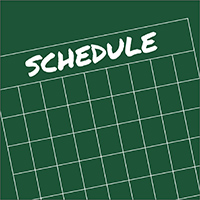 This might sound simple, and it actually is, but planning the next day before you go to sleep can improve your productivity tremendously. Were there any tasks left to do on that day? What priorities do you need to attend to for the next day? Write them all down in a to-do list so as to give yourself a sense of direction for the next day.
This might sound simple, and it actually is, but planning the next day before you go to sleep can improve your productivity tremendously. Were there any tasks left to do on that day? What priorities do you need to attend to for the next day? Write them all down in a to-do list so as to give yourself a sense of direction for the next day.
However, it’s best that you don’t cram your next day with too many activities as this can leave your brain exhausted before the day ends. Plus, there might be emergencies that can pop up on the next day that need your attention. If you’re too preoccupied with many things at once, you might not complete these sudden tasks to the best of your abilities.
- 3. Get Out
 Treating your break time as actual break time can make all the difference in letting your brain replenish itself. A lot of people take their breaks on their workspaces which is good for saving time but not the best method in letting the brain rest.
Treating your break time as actual break time can make all the difference in letting your brain replenish itself. A lot of people take their breaks on their workspaces which is good for saving time but not the best method in letting the brain rest.
The reason for this is simple: when the brain sees the same things or experiences the same stimuli from when it was required to be focused, then it subconsciously keeps itself in that focused state of mind. So, instead of resting, your brain is actually tense as it waits for that next round of activity.
Taking a break from work will also help improve your creativity. After all, seeing the same things from 9am to 5pm isn’t doing much to stimulate that creative part of your brain.
- 4. Avoid Distractions
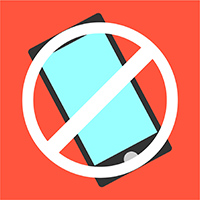 This is a no-brainer but you might be surprised as to much you can waste time by paying attention to distractions. For example, if you are working at a computer, there is the temptation to check your social media or surf the internet for pointless stuff. As a result, you spent a considerable amount of time in your work looking for cat videos and dank memes when you could have used that to complete your tasks quicker.
This is a no-brainer but you might be surprised as to much you can waste time by paying attention to distractions. For example, if you are working at a computer, there is the temptation to check your social media or surf the internet for pointless stuff. As a result, you spent a considerable amount of time in your work looking for cat videos and dank memes when you could have used that to complete your tasks quicker.
When it is time your work, work. Encourage others also to not bother you when you are working by sticking a Do Not Disturb sign in your workplace or, if available, close all doors. As for yourself, how you resist the urge to entertain distractions is all about mind over matter.
- 5. Have Your Goals In Sight Always
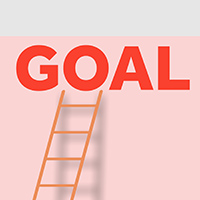 Any person who has played a First-Person Shooter Game (FPS) will know that whenever they get lost in the game, they can always rely on pressing the objectives button to see where to go and what tasks remain to be completed. The same goes for making yourself as productive as possible. If possible, always find ways to remind yourself of the goals you have set for yourself or the project in hand.
Any person who has played a First-Person Shooter Game (FPS) will know that whenever they get lost in the game, they can always rely on pressing the objectives button to see where to go and what tasks remain to be completed. The same goes for making yourself as productive as possible. If possible, always find ways to remind yourself of the goals you have set for yourself or the project in hand.
Things like writing it down on a white board or putting it in your personal journal can help your brain reorient itself after completing every phase of the task. This also helps you keep track of the results of your work and push yourself to complete everything according to the schedule you have set for everything.
Sharing that Productivity
Now being productive can only take you so far especially if you are in a business with other people. After all, what good is being the only productive person in the building while the others are not working at optimal levels?
Fortunately for you, productivity is something that can be easily shared especially if you are in the top management.
Here’s how:
- 1. Make them All Accountable
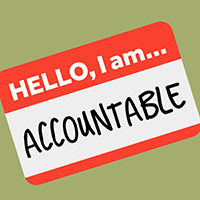 It can be surprising as how much you can make your staff even more productive by instilling in them a sense of agency and ownership for their work. If people feel that whatever they are doing won’t affect the company as a whole, they tend to either become reckless or less productive.
It can be surprising as how much you can make your staff even more productive by instilling in them a sense of agency and ownership for their work. If people feel that whatever they are doing won’t affect the company as a whole, they tend to either become reckless or less productive.
By making your staff accountable for their work, they are encouraged to put in more care and effort which should minimize errors on their part. Also, making your staff accountable helps them understand that their presence in the workplace matters. If they feel that they have a stake in the business, then they are more liable to give that extra effort to complete all of their tasks.
- 2. Never Micro-Manage
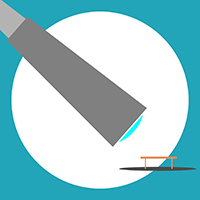 Although it is good that you look over every detail in the business’s operations, it’s not ideal for you to obsess over them. This is what micro-managing does and it leaves your staff overly dependent on you and unable to come up with their own decisions in crucial moments.
Although it is good that you look over every detail in the business’s operations, it’s not ideal for you to obsess over them. This is what micro-managing does and it leaves your staff overly dependent on you and unable to come up with their own decisions in crucial moments.
To avoid this, allow your staff some leeway by trusting that they can complete their tasks in whatever style they are most comfortable with. After all, every one of your staff has passed through the screening process which means that you right now should be at least confident that whoever you hired is competent enough to complete the task given to them.
Also, you should not be quick to pin the blame on anyone in your staff. It’s a strong blow to morale if managers berate their staff for any perceive infraction before checking if said infraction is either their fault or even if it exists at all. Try to handle problems in your workspace in a way that is professional by speaking to the alleged violator in private first and then finding out ways to address the issue so it won’t happen again.
- 3. Give them the Proper Gear
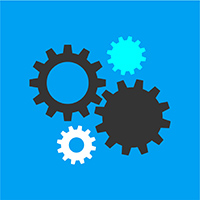 Do you know what could be a serious downer in the workplace? When you can’t even provide the tools for your staff to complete their tasks as efficiently as possible. Although equipment is not a factor in determining how effective your staff is, it does tend to affect their productivity. Simply put, faulty equipment leads to poor performance while good equipment can help your staff meet goals as quickly as they can.
Do you know what could be a serious downer in the workplace? When you can’t even provide the tools for your staff to complete their tasks as efficiently as possible. Although equipment is not a factor in determining how effective your staff is, it does tend to affect their productivity. Simply put, faulty equipment leads to poor performance while good equipment can help your staff meet goals as quickly as they can.
This is why you should never, ever, go for the el cheapo route when purchasing equipment for your employees. Always look for competitive brands that provide the best possible output. If your staff feel that they are properly equipped for the tasks at hand, then they won’t hesitate in completing it.
- 4. Make Things Less Repetitive
 Sure, you hired that person to do a very specific set of tasks from 9 am to 5 pm Monday to Friday. However, making that person perform the same thing over and over tends to mentally weigh them down and affect their productivity in the long run.
Sure, you hired that person to do a very specific set of tasks from 9 am to 5 pm Monday to Friday. However, making that person perform the same thing over and over tends to mentally weigh them down and affect their productivity in the long run.
You can prevent things from becoming too monotonous for yo0ur staff by providing a rotating task system where your employees will have to take on new roles once a certain period of time has passed. This will you’re your staff the chance to expand on their skill sets while also better understanding how your business works. Promotions also help as it gives your employees a sense of progression and achievement.
In Conclusion
Keeping the workplace as productive as possible can be a tall order. However, always remember that it always begins on the mind and can go as far down as your business’s organizational table can go. If you, as the owner, can make yourself as productive as possible, chances are that your staff will follow suit. The key here is to identify that your business has some issues with productivity rates and addressing them to the best of your abilities.
Have you encountered problems with productivity before? What other ways have you used to keep yourself and your staff focused on the work at hand? The comments section down below is always open for all sorts of discussion.
References:
https://www.entrepreneur.com/article/241797
RESOURCES
- Follow Julia on Twitter
THANK YOU FOR LISTENING!
To get more SBM content sent directly to your device as they become available, you can subscribe on iTunes or Stitcher!
Also, reviews on iTunes are extremely helpful and greatly appreciated! I read each and every one of them, and feel free to share your URL there so I can contact you later on and say thanks!
If you enjoyed this episode you may also love listening to:
Find Your Niche and Get Massive Leads with Jason Swenk
Building a Personal Branding Machine From Scratch with Natalie Sisson



